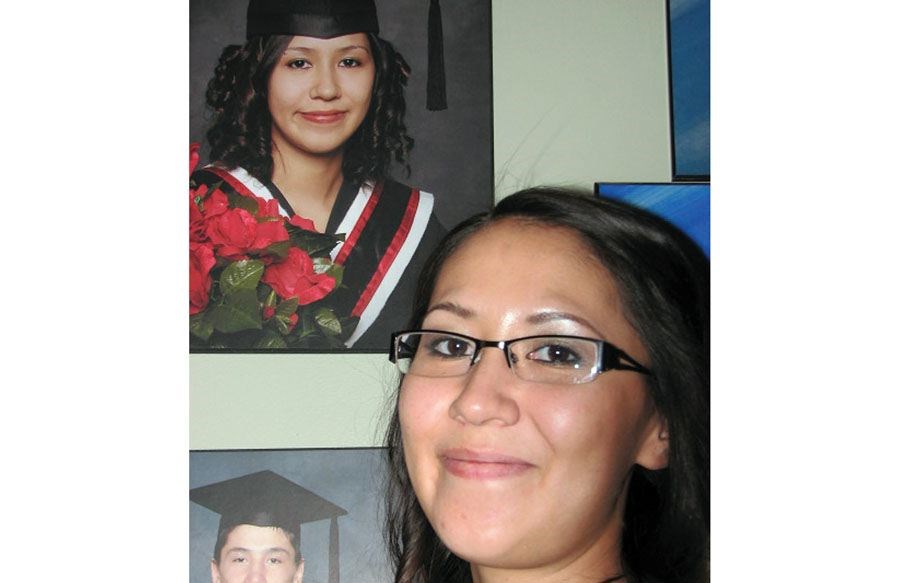KWADACHA -- Right now, Angela Hocken is a language teacher at Aatse Davie school, but give her time.
One day she could be chief of the Kwadacha First Nation.
Hocken, 26, has already made history in Kwadacha, a village of about 320 people located 570 kilometres north of Prince George. In 2006 she became the first student ever to graduate from the school, which first opened in 1980.
"When [school principal] Andreas Rohrbach first moved up here 15 years ago I told him it was my dream to be the first graduate of Aatse Davie school and I was," said Hocken.
"I remember I was a guinea pig because they weren't sure how to do the ceremony because I was the first one. I graduated during the awards night, but now they have a dinner to follow for the students. I didn't have that because they were unsure what the process should be."
The year after Hocken graduated, six students received their diplomas. This year, there are no graduates. Large colour portraits of all 17 graduates in the 27-year history of the school hang at the front entrance.
Hocken just completed her last course to earn her interim teaching certificate through the distance education program offered by Simon Fraser University and is about to move on to the undergraduate program at SFU to earn her degree.
"I have two career goals in mind -- teaching and I want to be a chief," she said.
Hocken has been working at the school ever since she graduated. She specializes in teaching the Tse'kene language as an assistant in the language classroom with Faye Seymour. The 80-student population is entirely aboriginal and Tse'kene words are prominent throughout the school. Each classroom has been given an English name as well as the Tse'kene translation.
"There's a lot of culture promotion in the school," said Hocken.
"Growing up, when we did our language class we always used flash cards and we learned some names, but it was never a big language class. Faye has been here since I was in kindergarten and I've learned a lot from her. We're doing a thing called total physical response, and it's a lot of movement, so with my young legs it works, because I'm all over the place."
The idea is to associate a word in Tse'kene with a specific movement which makes it easier for the kids to remember. She knows it's working because she's heard feedback from parents who see their kids practicing those same movements when they're not in school.
"The language is pretty close to extinct, which is where my motivation comes from to revitalize it," said Hocken.



